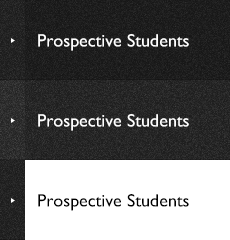The curriculum in the Graduate Major in Systems and Control Engineering develops (1) specialized mathematical scientific academic ability for modeling and computerizing, and analyzing real systems, (2) specialized mathematical scientific academic ability for creating and controlling real systems of new value, (3) ability to apply acquired specialized knowledge, (4) ability to accurately understand social problems, and establish and resolve tasks, and (5) ability to communicate and give presentations based on logical thinking. In order to achieve this, we have designed an educational program where the following five courses are organically arranged; Mathematics, Information, Measurement Control and Modeling, Real System Design, and Project Practice. This curriculum develops individuals who acquire forward-looking knowledge for measurement, control, design, and system science, who have adaptable inventiveness, creativity, and the ability to boldly apply this to new tasks.
-
- Mathematics
- Students will acquire the knowledge of mathematical science and informatics, which is necessary for understanding and computerizing phenomena, and system configuration and control.
-
- Information
- Students will master software design and programming skills necessary for designing systems.
-
- Measurement Control and Modeling
- Students will gain specialized knowledge and advanced knowledge of modeling, sensing, and control.
-
- Real System Design
- Students will acquire the practical and specialized knowledge for designing and developing actual systems.
-
- Project Practice
- Group training, individual training, and internships are conducted to put into practice advanced knowledge related to mathematics and information, and system creation and control; and to acquire the ability necessary for finding, setting, and resolving tasks, communicating, and giving presentations.
-
- Research Seminars
- Basic ability for proceeding with research is mastered by documenting the research process, and by having discussions with other researchers and academic supervisors. At the same time, students enhance their task-setting and resolving skills through master's thesis research.
*1 Indicates the standard model where the master's program is completed in two years.
. Any information published on this site will be valid in relation to Science Tokyo.


